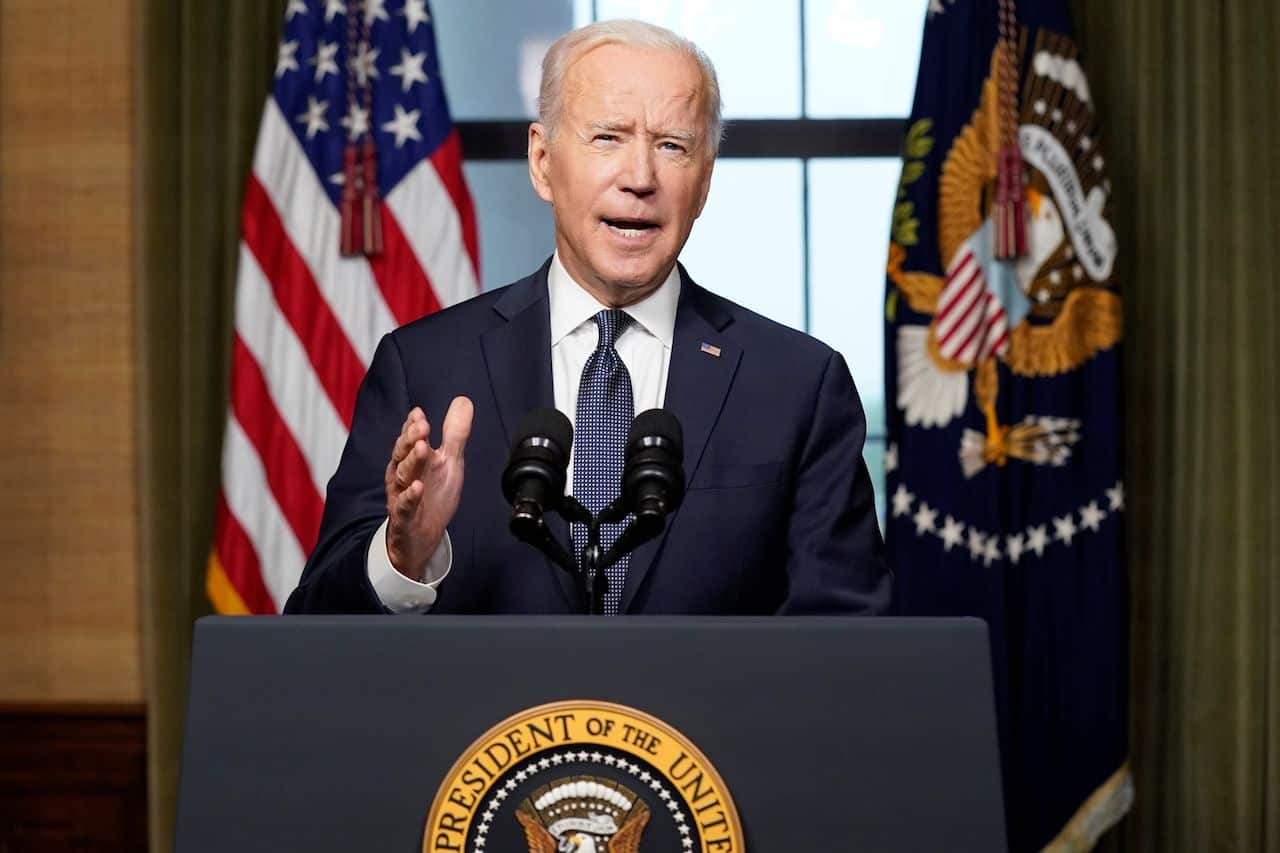Biden isn’t trying to put a good face on the Afghanistan withdrawal

“Our reasons to remain in Afghanistan become increasingly unclear even as the terrorist threat that we went to fight evolved,” Biden said. “Over the past 20 years, the threat has become more dispersed, metastasizing around the globe.”
Biden added: “We cannot continue the cycle of extending or expanding our military presence in Afghanistan, hoping to create ideal conditions for the withdrawal and expecting a different result.”
Biden repeatedly returned to the idea that withdrawals have been attempted but that relying upon conditions on the ground has been a recipe for — or at worst, an excuse for — an unnecessarily prolonged conflict.
He also repeatedly addressed critics of his plan directly, seeking to allay their concerns but arguing that their plan is a recipe for an indefinite and seemingly endless campaign.
“No one wants to say that we should be in Afghanistan forever, but they insist now is not the right moment to leave,” Biden said. “In 2014, NATO issued a declaration affirming that Afghan security forces would, from that point on, have full responsibility for this country’s security by the end of that year. That was seven years ago. So when will it be the right moment to leave? One more year? Two more years? Ten more years?”
Biden also dismissed the idea that pulling out would reduce U.S. standing in ongoing diplomatic negotiations, saying that this ship has sailed.
“Look, I know there are many who will loudly insist that diplomacy cannot succeed without a robust U.S. military presence to stand as leverage. We gave that argument a decade,” Biden said, referring to a period that notably included most of his time as vice president. “It’s never proved effective — not when we had 98,000 troops in Afghanistan, and not when we’re down to a few thousand.”
Biden said that approach has failed and that a new one is in order.
“Our diplomacy does not hinge on having boots in harm’s way — U.S. boots on the ground. We have to change that thinking,” Biden said. “American troops shouldn’t be used as a bargaining chip between warring parties in other countries. You know, that’s nothing more than a recipe for keeping American troops in Afghanistan indefinitely.”
Despite his argument that now is the time, some of Biden’s most interesting comments came when he also suggested he had been forced to make this decision now. His Sept. 11 deadline is later than the May 1 deadline that the Trump administration negotiated with the Taliban — though not one Biden agreed to himself. But Biden indicated that Trump had tied his hands to some degree and that he felt he had to provide a timeline because of it.
“In this moment, there’s a significant downside risk to stay beyond May 1 without a clear timetable for departure,” Biden said.
At another point, he doubled down on the idea that the May 1 deadline forced his hand to some degree, but said — in an apparent contrast to Trump having pulled out of international agreements forged by the Barack Obama administration like the Iran nuclear agreement and the Trans-Pacific Partnership — that it was vital to deal with it.
“It’s perhaps not what I would have negotiated myself,” Biden said, “but it was an agreement made by the United States government, and that means something.”
Biden’s overall message, though, is that staying in Afghanistan, whatever might result, doesn’t make sense and doesn’t carry obvious and discernible benefits. He said the reliance upon conditions on the ground no longer makes sense.
“Just what conditions [would be] required to allow us to depart. By what means and how long would it take to achieve them, if they could be achieved at all? And at what additional cost in lives and treasure?” Biden said. “I have not heard any good answer to these questions. And if you can’t answer them, in my view, we should not stay.”
Given the nearly 20-year war and the repeated attempts to pull out of it, it’s perhaps understandable that Biden didn’t really try to put a good face on his decision. But it’s also a massive commentary on just how difficult it is to pull out of such a war, when the message is less that it has succeeded and that the troops can come home in victory, as much as that it’s just not worth it anymore and that the objectives just aren’t realistic.






